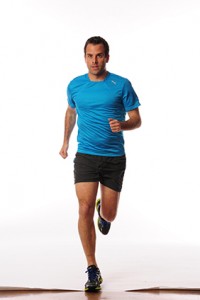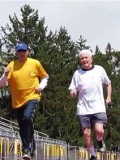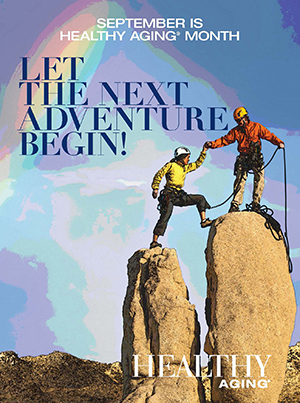
Fred Vuich photo credit
By Vijay Vad, MD, Author, The New Rules of Running
In a new study published last month by The Journal of the American College of Cardiology, Danish researchers discovered that joggers who ran just a few miles per week at a slow pace enjoyed a longer life expectancy than those runners who ran much greater distances at faster speeds. In fact, when comparing health records between the slow-paced joggers, brisk-paced runners and sedentary–albeit generally healthy–non-runners–the hare’s life expectancy was no greater than the sleeping bear’s. It was the plodding tortoise that came out way ahead.
The research
The researchers looked at the health habits of a more than a thousand adult men and women who identified themselves as joggers from the Copenhagen City Heart Study. They then compared these records against several thousand fairly healthy volunteers who didn’t exercise at all. The joggers were asked to provide information on how often and how long they ran each week, and at what pace. (For the purposes of the study, the researchers then categorized these runners as either slow, average, or fast.)
After comparing the death records of the two groups more than a dozen years later, the researchers came to the conclusion that running as little as 1 to 2.4 hours per week had more long-term health benefits than running briskly (i.e., strenuously) or not running at all.
Benefits of running
The news that running is good for you is nothing new at all. Several recent studies have shown that running and other forms of exercise can actually trigger new brain cell growth, improve your mental sharpness, and lower your risk of developing Alzheimer’s disease and other mental illnesses often associated with aging. Running has similarly been shown to increase the production of endorphins, a neurotransmitter secreted within the brain and nervous system that helps block pain and produce a feeling of well-being. This is why many scientists believe that running is a very effective way to ease symptoms of depression and anxiety.
Running in moderation has also been shown to dramatically reduce insulin resistance and lower your risk of developing heart disease and diabetes. In light of today’s obesity epidemic, this is big news. Running is really the best anti-obesity drug out there. Recent studies also suggest that running in moderation can also lower your risk of developing osteoarthritis—since runners are less likely to be overweight. Runners are also more likely to maintain muscle mass as they age, especially in the lower limbs that are prone to muscle fatigue, which also helps to combat osteoarthritis.
An active lifestyle that includes running keeps the heart pumping and the body running more efficiently. But if these aren’t reasons enough to start a running regimen, no matter what your age is, the Copenhagen study should have you running to your nearest Foot Locker or specialty shoes store.
Just remember to do it slowly.
How fast or slow?
The Copenhagen study doesn’t define what slow or fast is, but to me running slow means to run at a leisurely, comfortable speed that’s enjoyable for you. In other words, you should be able to carry on a conversation with another person when you’re jogging. The faster you run the more shear stresses you place on your joints, and the greater the risk of injury and developing arthritis. Jogging slow helps minimize these stresses and preserve your joints, so that you can reap all of the benefits of running.
The American College of Sports Medicine (ACSM) recommends that people exercise a minimum of 30 minutes four or five days per week. Why not take two or three of these days and start a running regimen? Just make sure to check with your physician first before starting any new exercise program.
And if you’re already an active runner, don’t stop, simply back off the mileage and take it easy out there. Be the tortoise! You don’t stop running because you get old, you get old because you stop running.
Vijay Vad, MD, is the author of “The New Rules of Running: Five Steps to Run Faster and Longer for Life” (Avery Publishing, April 2014), with Dave Allen. The book includes prevention and treatment strategies for running’s most common injuries, helpful nutrition and training tips, and full and half-marathon training schedules from two-time NYC Marathon champion Tom Fleming. Available wherever books are sold (www.us.penguingroup.com; www.thenewrulesofrunning.com











